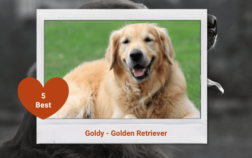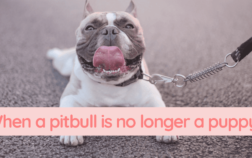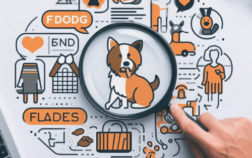Dog Constipation is a common issue that can affect dogs of all ages and breeds. It occurs when a dog has difficulty passing stools or has infrequent bowel movements. Understanding the causes and symptoms of constipation is important for pet owners to ensure their dog’s overall health and well-being.
Understanding Constipation in Dogs: Causes and Risk Factors
Constipation in dogs is defined as the inability to pass stools regularly or with ease. There are several common causes and risk factors that can contribute to this condition. One of the main causes is a lack of fiber in the diet, which can lead to hard and dry stools that are difficult to pass. Other factors include dehydration, lack of exercise, certain medications, and underlying medical conditions such as intestinal blockages or tumors.
Age, breed, and diet can also play a role in a dog’s susceptibility to constipation. Older dogs are more prone to constipation due to decreased muscle tone in the intestines. Certain breeds, such as Bulldogs and Pugs, are also more prone to constipation due to their anatomy and shorter digestive tracts. Additionally, a diet that lacks sufficient fiber or is high in processed foods can contribute to constipation.
Signs and Symptoms of Dog Constipation: What to Look Out For
It’s important for pet owners to be aware of the signs and symptoms of constipation in dogs so they can seek veterinary care if necessary. Behavioral changes may include restlessness, discomfort, or straining during bowel movements. Physical symptoms can include dry or hard stools, decreased appetite, vomiting, and abdominal pain.
If your dog is experiencing any of these symptoms for more than 24 hours, it is recommended to seek veterinary care. A veterinarian will be able to determine the underlying cause of the constipation and provide appropriate treatment.
The Importance of Regular Bowel Movements for Your Dog’s Health
Regular bowel movements are essential for a dog’s overall health and well-being. When constipation occurs, waste products can build up in the intestines, leading to discomfort and potential health issues. Additionally, bowel movements play a crucial role in digestion and nutrient absorption.
When waste products are not eliminated regularly, the body may have difficulty absorbing essential nutrients from food. This can lead to malnutrition and other health problems. Regular bowel movements also help to remove toxins from the body, promoting a healthy immune system.
How to Diagnose Constipation in Dogs: When to Seek Veterinary Care
If you suspect that your dog is constipated, it is important to consult a veterinarian for a proper diagnosis. The veterinarian will perform a physical examination and may recommend diagnostic tests and procedures to determine the underlying cause of the constipation.
These tests may include blood work, X-rays, or ultrasounds to rule out any underlying medical conditions such as intestinal blockages or tumors. The veterinarian will also ask about your dog’s diet, exercise routine, and any recent changes in behavior or environment.
Home Remedies for Dog Constipation: Natural Ways to Promote Bowel Movements

In some cases, mild constipation can be treated at home with natural remedies and lifestyle changes. One of the first steps is to increase your dog’s fiber intake. This can be done by adding canned pumpkin or psyllium husk to their food. These natural sources of fiber can help soften stools and promote regular bowel movements.
Exercise and physical activity are also important for maintaining digestive health in dogs. Regular exercise helps to stimulate the muscles in the intestines, promoting healthy bowel movements. Taking your dog for daily walks or engaging in playtime can help prevent constipation.
There are also natural remedies and supplements available that can help promote bowel movements in dogs. These include herbal remedies such as aloe vera juice or slippery elm bark powder. However, it is important to consult with a veterinarian before giving your dog any new supplements or remedies.
Dietary Changes to Prevent and Treat Constipation in Dogs
A balanced diet is essential for preventing and treating constipation in dogs. It is important to provide your dog with a high-quality commercial dog food that is specifically formulated for their age, breed, and size. These foods are typically balanced in nutrients and contain adequate amounts of fiber.
Foods that are high in fiber can help promote regular bowel movements. Some examples of high-fiber foods for dogs include green leafy vegetables, fruits such as apples or bananas, and whole grains such as brown rice or oats. It is important to introduce these foods gradually to avoid digestive upset.
If you are considering switching your dog’s diet, it is important to do so gradually to avoid digestive upset. Start by mixing a small amount of the new food with their current food and gradually increase the amount over a period of several days.
The Role of Exercise in Maintaining Digestive Health in Dogs
Regular exercise is not only important for a dog’s overall health, but it also plays a crucial role in maintaining digestive health. Exercise helps to stimulate the muscles in the intestines, promoting healthy bowel movements.
There are several types of exercise and physical activity that can benefit a dog’s digestive health. Taking your dog for daily walks or engaging in playtime can help stimulate their digestive system. Activities such as swimming or agility training can also provide mental and physical stimulation, which can help prevent constipation.
Medical Treatments for Dog Constipation: What to Expect
In some cases, home remedies may not be sufficient to treat constipation in dogs, and medical intervention may be necessary. The veterinarian may prescribe medications such as stool softeners or laxatives to help relieve constipation. These medications work by increasing water content in the intestines or stimulating muscle contractions.
In more severe cases, the veterinarian may recommend procedures such as enemas or manual removal of impacted feces. These procedures should only be performed by a trained professional and under sedation or anesthesia.
It is important to discuss the risks and benefits of any medical treatments with your veterinarian. They will be able to provide guidance on the best course of action for your dog’s specific situation. Follow-up care may also be necessary to monitor your dog’s progress and make any necessary adjustments to their treatment plan.
Preventing Constipation in Dogs: Tips for Long-Term Bowel Health
Preventing constipation in dogs is key to maintaining their long-term bowel health. Regular veterinary check-ups are important for monitoring your dog’s overall health and identifying any potential issues before they become more serious.
Lifestyle changes can also help prevent constipation. This includes providing a balanced diet that is high in fiber, ensuring your dog has access to fresh water at all times, and promoting regular exercise and physical activity.
Preventative measures such as regular grooming can also help prevent constipation. Dogs with long hair or excessive shedding may be more prone to ingesting hair, which can contribute to constipation. Regular brushing and grooming can help remove loose hair and prevent it from being ingested.
When to Consult a Vet: Understanding the Risks of Untreated Constipation in Dogs
If left untreated, constipation in dogs can lead to potential complications and serious health issues. One of the main risks is the development of megacolon, which is a condition characterized by an enlarged colon that loses its ability to contract and move waste through the intestines.
Other potential complications include intestinal blockages, rectal prolapse, or fecal impaction. These conditions can be painful and may require surgical intervention to correct.
If your dog is experiencing severe symptoms such as vomiting, abdominal pain, or a distended abdomen, it is important to seek emergency veterinary care. These symptoms may indicate a more serious underlying condition that requires immediate attention.
Early intervention is key to preventing complications and ensuring your dog’s overall health and well-being. If you suspect that your dog is constipated, it is always best to consult with a veterinarian for a proper diagnosis and treatment plan.
Constipation in dogs is a common issue that can have a significant impact on their overall health and well-being. Understanding the causes, symptoms, and treatment options for constipation is important for pet owners to ensure their dog’s digestive health.
By making dietary changes, promoting regular exercise, and seeking veterinary care when necessary, pet owners can help prevent and treat constipation in their dogs. Proactive care and early intervention are key to maintaining a healthy digestive system and ensuring a happy and healthy life for your furry friend.
If you’re concerned about your dog’s digestive health and suspect they may be experiencing constipation, it’s important to understand the symptoms and potential causes. To learn more about constipated dog symptoms and how to alleviate them, check out this informative article on PetsGuyver.com: Constipated Dog Symptoms: Causes, Signs, and Remedies. This article provides valuable insights and practical tips to help your furry friend find relief.
FAQs
What are the symptoms of constipation in dogs?
Some common symptoms of constipation in dogs include straining to defecate, passing small or hard stools, decreased appetite, lethargy, vomiting, and abdominal discomfort.
What causes constipation in dogs?
Constipation in dogs can be caused by a variety of factors, including dehydration, lack of exercise, a diet low in fiber, obesity, certain medications, and underlying medical conditions such as intestinal blockages or neurological disorders.
How can I prevent constipation in my dog?
To prevent constipation in your dog, make sure they have access to plenty of fresh water, provide regular exercise, and feed them a balanced diet that is high in fiber. You can also try adding canned pumpkin or a fiber supplement to their food.
When should I take my dog to the vet for constipation?
If your dog is experiencing constipation for more than a day or two, or if they are showing signs of discomfort or distress, it is important to take them to the vet. In some cases, constipation can be a symptom of a more serious underlying condition that requires medical attention.
How is constipation in dogs treated?
Treatment for constipation in dogs may include dietary changes, increased exercise, hydration therapy, laxatives, or enemas. In severe cases, surgery may be necessary to remove an intestinal blockage. It is important to follow your vet’s recommendations for treatment and to monitor your dog’s progress closely.



